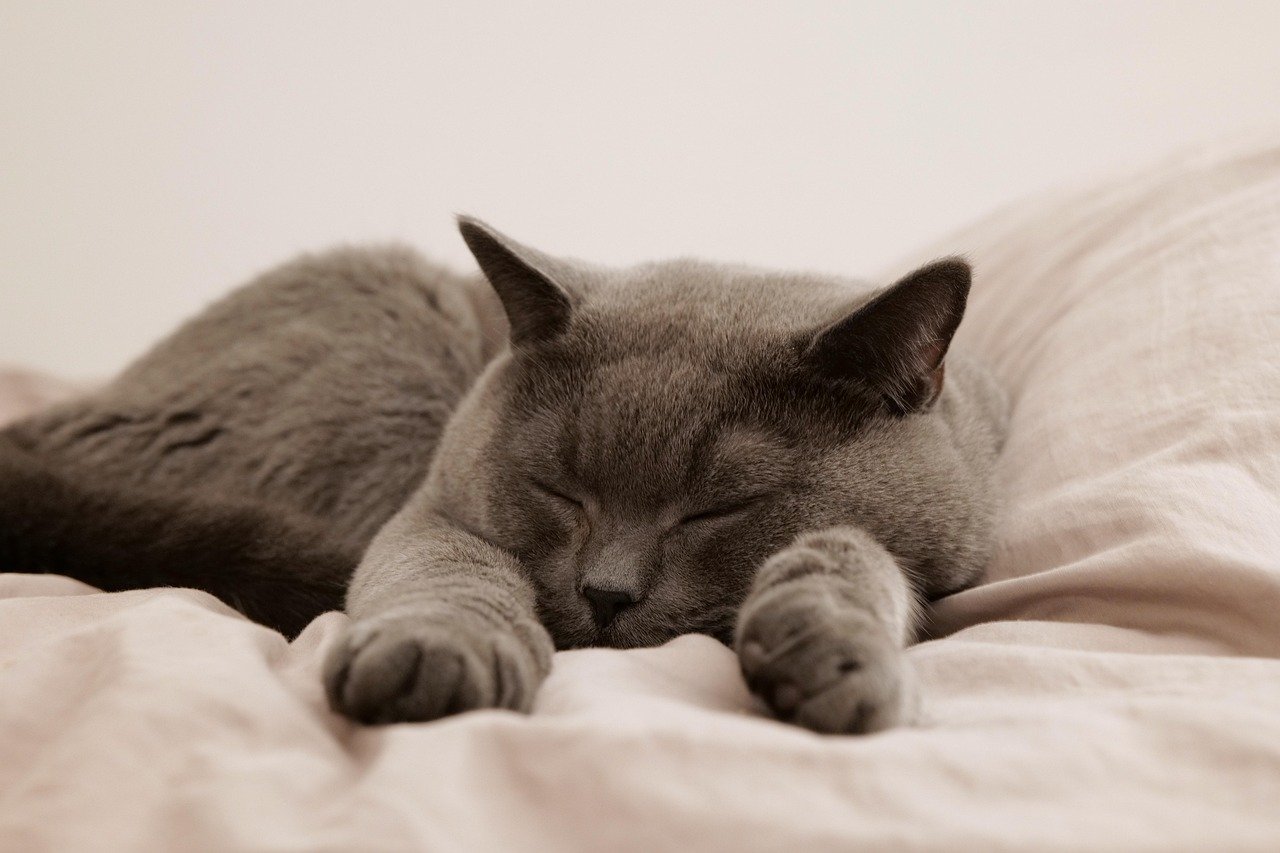If you’ve ever been jolted awake by the haunting cries of your elderly cat, you’re not alone. The sound can be unsettling and make you wonder if your beloved feline is in distress. But why do older cats yowl more frequently, and what can you do about it? Let’s dive into this intriguing behavior and discover the various reasons behind it.
If your elderly cat has started yowling more than usual, it could be their way of telling you something’s off. Aging cats often develop conditions like cognitive dysfunction, hearing loss, or even pain from arthritis—all of which can lead to excessive vocalization. Sometimes, it’s just confusion or anxiety that comes with getting older. A sudden change in behavior is always worth checking out with your vet. Understanding the cause can help you comfort your senior kitty and improve their quality of life.
Age-Related Cognitive Decline
As cats age, their cognitive abilities can decline, much like in humans. This condition is often referred to as feline cognitive dysfunction syndrome (CDS). Cats suffering from CDS might forget where they are or become disoriented, leading to increased vocalizations. Imagine waking up in a room you don’t recognize; you would likely call out for help or comfort. This is similar to what your cat might be experiencing. Regular veterinary check-ups can help diagnose this condition, and while there is no cure, some treatments and lifestyle modifications can improve your cat’s quality of life.
Seeking Attention and Companionship
Older cats may yowl more to seek attention or companionship. As they age, they might feel more vulnerable and crave the comfort of human interaction. Just like an elderly person might feel lonely and call out for company, your cat could be doing the same. Spending more time with your feline friend, engaging in gentle play, or simply sitting together can significantly reduce their need to vocalize excessively. Remember, your presence can be a source of immense comfort for your aging pet.
Pain or Discomfort

Pain or discomfort is a common reason for excessive yowling in elderly cats. Arthritis, dental issues, or other age-related ailments can cause significant pain, prompting your cat to vocalize. Cats are notorious for hiding their pain, but yowling can be a sign that something is amiss. Observing your cat’s behavior closely and consulting with a veterinarian can help identify any underlying health issues. Treatment options are available to alleviate pain and improve your cat’s quality of life.
Changes in Vision or Hearing

As cats grow older, their senses can deteriorate. Diminished vision or hearing can lead to increased yowling as they try to navigate their environment. Imagine being in a dimly lit room with muffled sounds; it would be disorienting. Your cat might feel the same way, leading to vocalizations as they try to make sense of their surroundings. Ensuring your home is well-lit and minimizing obstacles can help your cat feel more secure and reduce their need to yowl.
Hunger or Thirst
An elderly cat’s dietary needs can change with age. They might require more frequent feedings or have specific dietary restrictions. Hunger or thirst can lead to increased vocalizations, as your cat tries to communicate their needs. Ensuring your cat has access to fresh water and a balanced diet is crucial. Regular feeding schedules can also help minimize yowling related to hunger or thirst.
Stress and Anxiety
Changes in the household, such as a new pet or a move, can be stressful for an elderly cat. Stress and anxiety can manifest as excessive yowling. Like humans, cats thrive on routine and familiarity. Maintaining a consistent environment and providing a safe space for your cat can help reduce their stress levels. Calming products, such as pheromone diffusers, can also be beneficial in easing your cat’s anxiety.
Medical Conditions
Certain medical conditions, such as hyperthyroidism or kidney disease, can lead to increased vocalizations in older cats. These conditions can cause discomfort or confusion, prompting your cat to yowl. Regular veterinary check-ups are essential to diagnose and manage any underlying health issues. With proper treatment, many of these conditions can be controlled, reducing your cat’s need to vocalize excessively.
Nighttime Disorientation
Elderly cats may experience nighttime disorientation, leading to increased yowling after dark. This can be due to a combination of cognitive decline, diminished senses, and the natural quietness of night amplifying their feelings of confusion. Providing a nightlight and creating a comfortable sleeping area can help your cat feel more secure. Establishing a bedtime routine can also reduce nighttime yowling.
Habitual Behavior

Sometimes, yowling becomes a habit. If your cat has received attention or food in response to yowling in the past, they might continue the behavior expecting the same result. It’s essential to identify and break this cycle by rewarding quiet behavior and ignoring excessive vocalizations. Consistency is key, and over time, your cat will learn that yowling is not an effective way to get what they want.
Conclusion
Understanding why your elderly cat is yowling excessively can be a puzzle, but it’s one worth solving for the well-being of your furry friend. From cognitive decline to medical conditions, there are various reasons for this behavior. By paying attention to their needs and seeking veterinary advice, you can ensure a happier, quieter life for both you and your cat. So, next time your cat yowls, remember it’s their way of communicating, and with a little patience and love, you can help them find peace.





